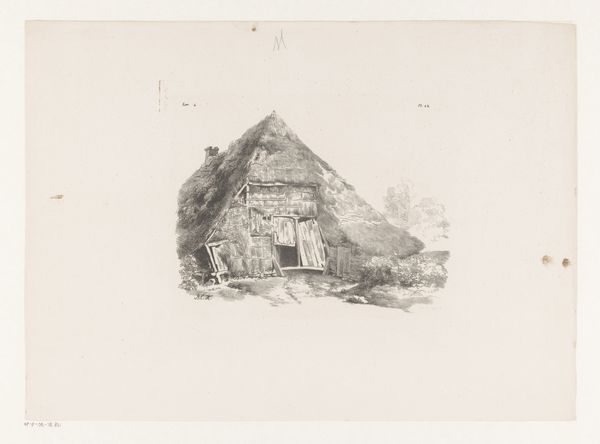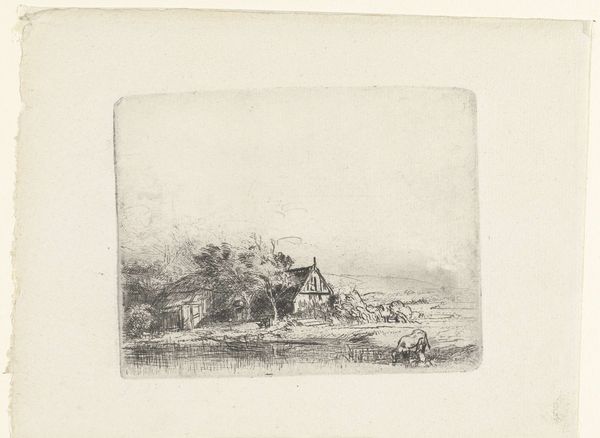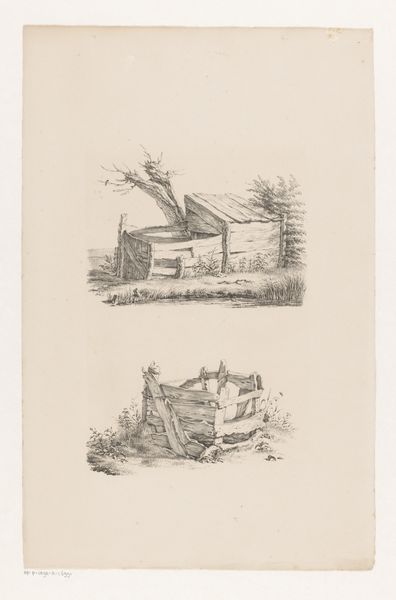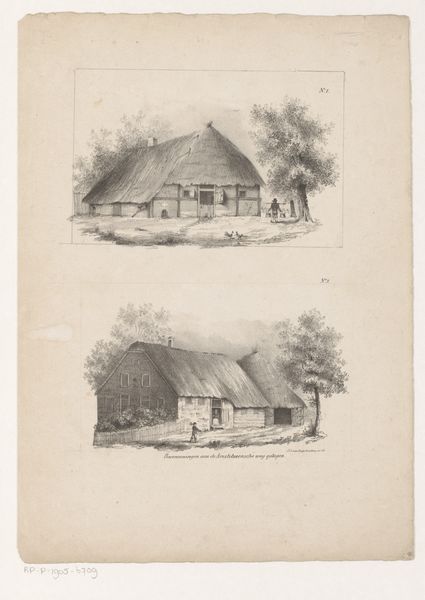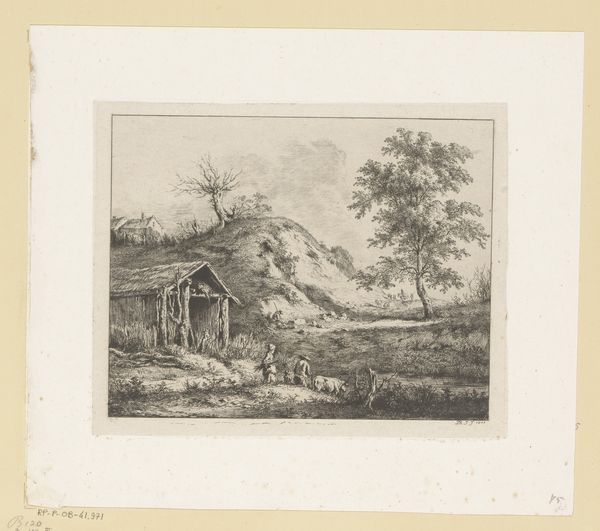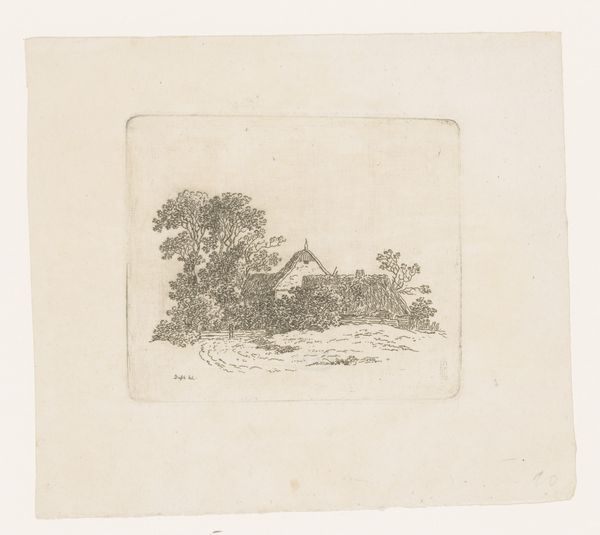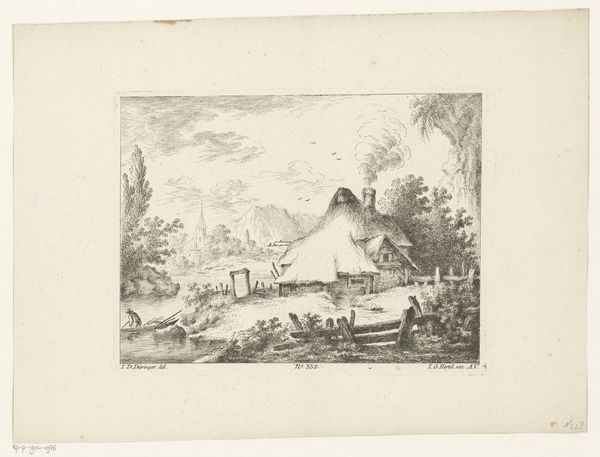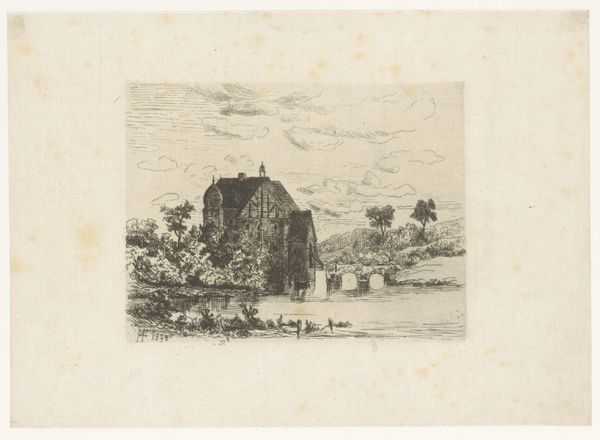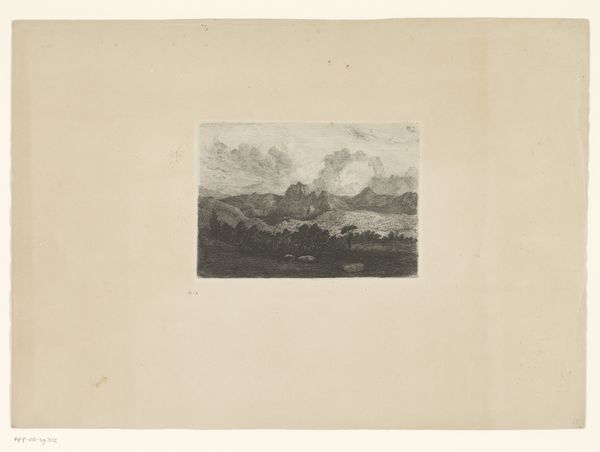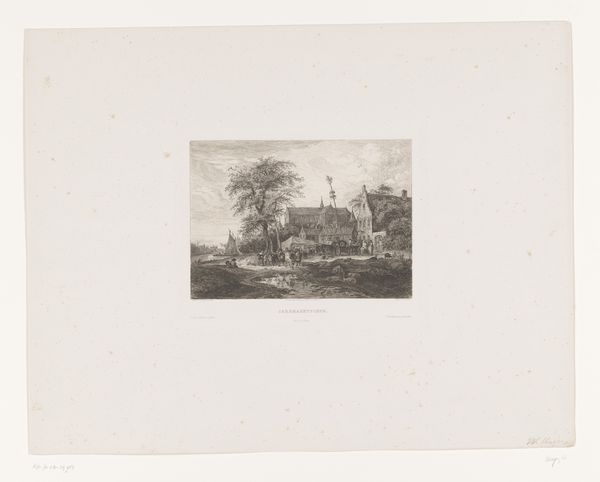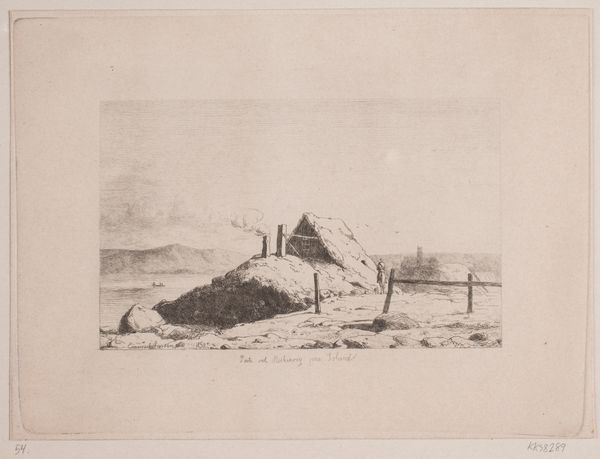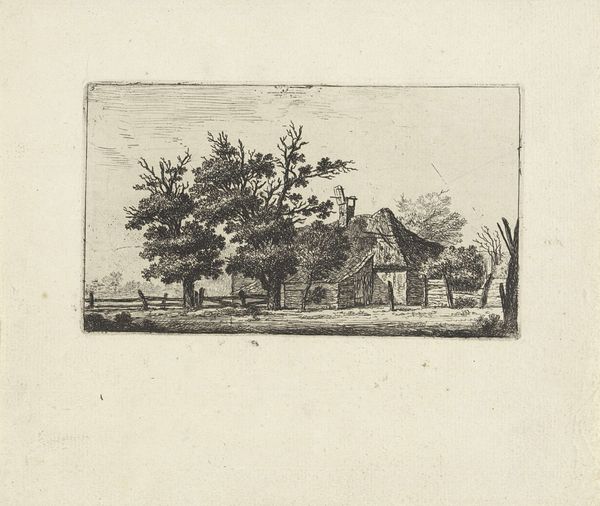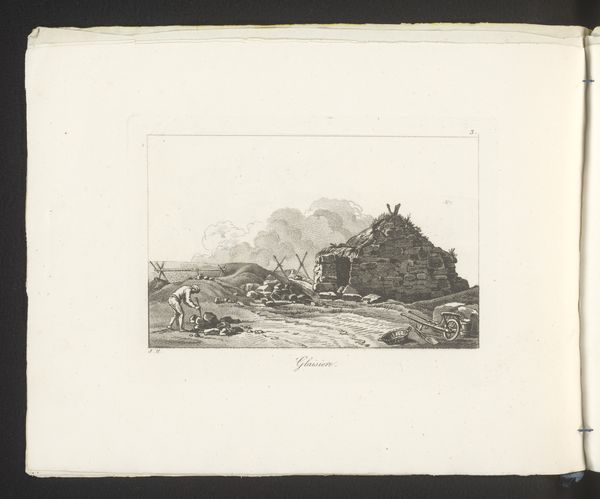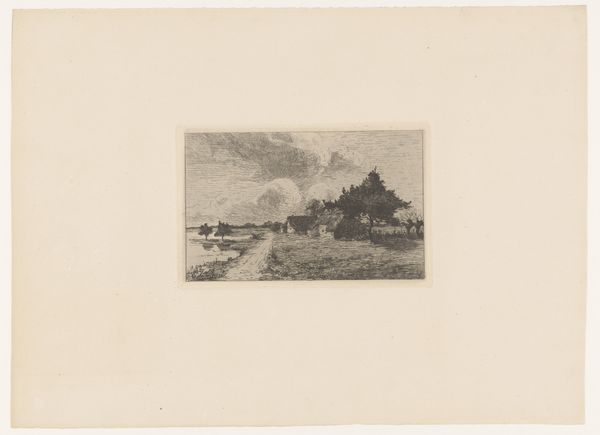
#
photo of handprinted image
#
aged paper
#
pale palette
#
photo restoration
#
ink paper printed
#
parchment
#
light coloured
#
old engraving style
#
white palette
#
soft colour palette
Dimensions: height 322 mm, width 244 mm, height 80 mm, width 103 mm, height 80 mm, width 103 mm
Copyright: Rijks Museum: Open Domain
Curator: What a captivating little scene. We’re looking at an 1842 print called "Twee voorstellingen" or "Two Scenes," created by Johann Caspar Nepomuk Scheuren, here at the Rijksmuseum. Editor: Yes, immediately I’m struck by how serene the top scene is compared to the lower one. The upper one feels almost pastoral and pleasant while the lower one, featuring a desolate looking building, seems… well, austere. Curator: That contrast is key. Scheuren, working in the Romantic period, often explored these tensions between idealized landscapes and the harsh realities of the everyday. Prints like these, made with ink on paper, were widely disseminated, shaping public perceptions. Editor: It feels like more than just artistic temperament at play. The images also suggest different spiritual states. The church in the bottom frame certainly isn't inviting! It lacks familiar symbolic figures but the architecture still has that power to conjure. I feel a certain psychological weight there. Curator: Interesting observation. Remember though, printmaking served a broader social function. By making multiple copies he allowed for a dialogue amongst many, regardless of social standing or background. Art wasn't simply a transaction within an elite group of connoisseurs. Editor: Definitely, there’s an accessible charm despite the fineness of line and detail. The symbolic significance lies in this perceived contrast in these common scenes. It reflects an uncertainty in both faith and environment. Look at those tiny figures huddled together as the church seemingly looms out from the cliffs! Curator: Precisely, we begin to grasp the complex, often contradictory, sentiments that underpin much of Romantic-era production. Editor: What is especially interesting, is seeing how familiar cultural anxieties become translated through time and media! Thanks for this exploration of "Twee voorstellingen." Curator: My pleasure, may it inspire further contemplation on our collective artistic legacy.
Comments
No comments
Be the first to comment and join the conversation on the ultimate creative platform.
